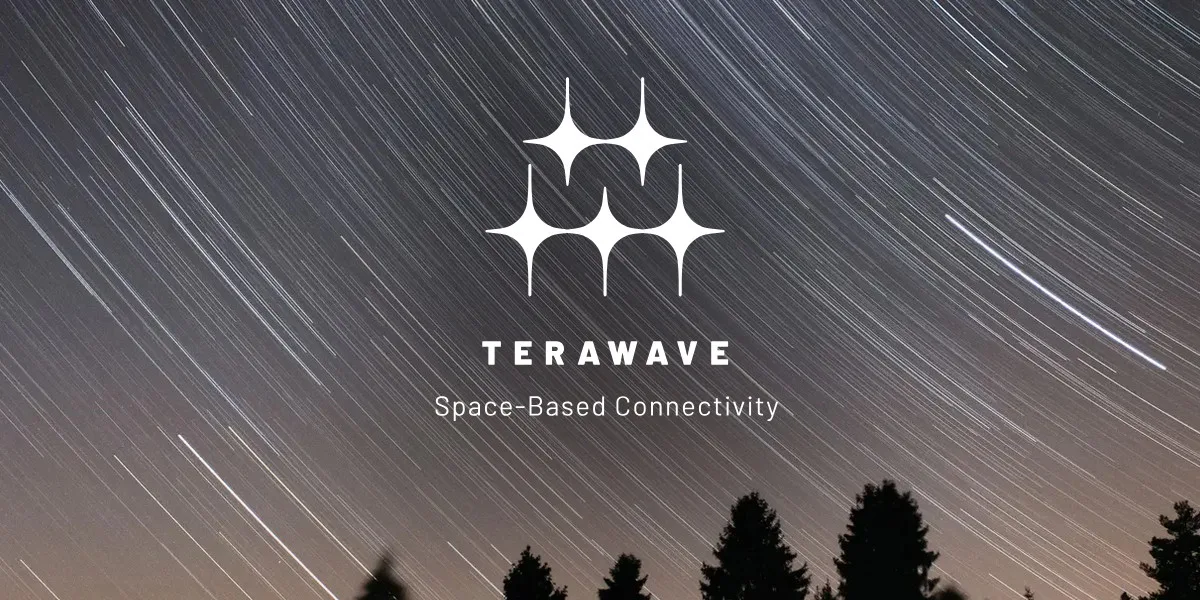What Is 5G Home Internet? Here Is Everything You Need To Know
Aug 29, 2025 | Share
Technology
-
Best overallT-Mobile Rely Home Internet
- Price: $50/mo.
w/ AutoPay, plus taxes & fees. - Speed: Up to 415Mbps
- Widest availability
- Discount for T-Mobile wireless customers
- Slower speeds than Verizon
- Price: $50/mo.
-
Verizon 5G Home Internet
- Price: $50/mo.*
($35/mo. w/ Verizon Unlimited Plus) - Speed: Up to 300Mbps
- Fast speeds
- Great price for Verizon wireless users
- Lesser availability
- Price: $50/mo.*
-
AT&T Internet Air
- Price: $60/mo.‡
- Speed: Up to 300Mbps
- Great alternative to DSL
- Excellent service in non-fiber areas
- Limited deals and promos
-
Starry 300
- Price: $45.00/mo.§ w/ Debit Discount
- Speed: Up to 300Mbps
- Excellent speeds for cord-cutters
- Low prices
- Limited nationwide availability
Read disclaimers.
5G is the latest wireless standard for cell phones, but it also makes up the backbone for an emerging type of Wi-Fi. Dubbed 5G home internet, it’s a fixed wireless setup that gets you internet service over a router that connects to outdoor radio towers and small cell transmitters.
This fast, cost-effective form of wireless internet is often pitched as a competitive alternative to cable. Available mostly in urban areas, a 5G home internet plan from Verizon, T-Mobile, AT&T, or Starry Internet gets you solid speeds at a bargain price (usually $50 a month or less). As an added plus, it almost always comes with unlimited data and doesn’t require a contract or fees for installation or equipment.
5G home internet gives you a lot of advantages—but also some technical limitations to keep in mind. Read on for our full breakdown of what 5G is, how it works, and why (or why not) you should get it.
Find out if you can get 5G
Eager to get plugged into 5G home internet? Run a search with your zip code below to see if it’s available in your area.
Is 5G home internet worth it?
5G home internet is worth it if you want a budget internet plan but you don’t necessarily need fast speeds. While 5G speeds are solid for most small to mid-sized households, the real selling point for this internet service is the fact that it’s cheap and comes with a lot of extra perks.
The upside: 5G home internet plans usually cost a flat fee of $50 a month and get you solid speeds to support a handful of computers, phones, and smart devices. On top of that, you also get lots of additional perks and promotions, including unlimited data and no fees for installation or equipment.
The downside: Most 5G home internet providers offer a limited number of plans to pick from—usually just one or two. 5G can’t deliver the multi-gig or symmetrical speeds of a fiber internet plan, and you may have to deal with fluctuating and inconsistent speeds. It’s not a dealbreaker, but it’s not ideal for activities like VR, hard-drive backups, and livestreaming.
Pro tip: Test your internet speeds
Unlike fiber or cable, 5G works over a wireless network. Your internet connection is likely only going to be as good as the cell service you get in your area. Take a speed test to monitor your connection regularly and get an idea of the speeds you get.
5G pros and cons
 Pros:
Pros:
- Unlimited data
- No annual contract
- No fees for installation or equipment
- Prepaid gift cards
- Discounts when you bundle with a wireless plan
 Cons:
Cons:
- Limited availability (mostly found in urban areas)
- Greater chance of unstable connection
- Limited speed options (no multi-gig or symmetrical-speeds plans)
- Potentially worse performance in areas with poor cell service
What are the best 5G home internet plans?
Verizon, T-Mobile, and AT&T all have 5G home internet offerings. Verizon’s 5G plans boast of the fastest speeds, but the three providers are all fairly equal in terms of pricing and perks.
Whoever you go with, you get a plan that costs $50 or $55 a month, along with unlimited data and no contract requirement. You can get a discount on your bill when you bundle it with a wireless phone plan from the plan’s respective provider. T-Mobile and Verizon also offer generous promotions and perks to new customers.
Top 5G home internet plans
| Provider | Speed | Price | View on provider's site |
|---|---|---|---|
| Verizon 5G Home Internet Plus | Up to 500Mbps | $60/mo.* ($45/mo. w/ Verizon Unlimited Plus) | View Plan for Verizon Home Internet |
| T-Mobile All-In Internet | Up to 498Mbps | $70/mo.† w/ AutoPay, plus taxes & fees. | View Plan for T-Mobile Home Internet |
| AT&T Internet Air | Up to 300Mbps | $60/mo.‡ | View Plan for AT&T Internet Air |
| Starry 300 | Up to 300Mbps | $45.00/mo.§ w/ Debit Discount | View Plan for Starry Internet |
Read disclaimers.
How does 5G home internet work?
5G home internet works by transmitting data over a fixed wireless internet network to your home router from a nearby radio transmitter.
Unlike cable or fiber connections—which sends internet through wired home broadband infrastructure—5G runs over a wireless connection maintained by networks of radio towers. Cellular companies have rolled out 5G networks across the country over the past several years. But 5G home internet is mostly limited to urban areas because it uses the shorter-range frequencies of C-band and mmWave to deliver the fastest possible speeds.
Prior to 5G coming out a few years ago, radio and cellular frequencies typically weren’t used to support internet customers on a wide scale. But 5G represents a notable step forward for wireless networking. Since 5G harnesses previously underused frequency spectrums, that means it’s fast and reliable—although you may experience a less-consistent download speed since the signals are traveling through the air.
Pro tip: Learn the ins and outs of 4G vs. 5G
Take a look at our 4G vs. 5G guide to learn the difference between these two wireless standards.
Want to expand your mind even further? Step into the future with our explainer on 6G, a tech type that technically doesn’t exist yet.
Alternatives to 5G home internet
Fiber internet is the best alternative to 5G home internet. A basic fiber plan costs about the same as (or usually a little bit more than) 5G home internet plans, but you get a much faster connection, with better upload speeds and much more consistency.
You can also get cable internet if you don’t want 5G home internet. Although 5G home internet service is itself touted as a worthy alternative to cable, 5G still can’t quite beat cable in terms of gigabit speeds or all-around reliability.
However, cable internet service comes with a lot of extra baggage too—including fees for installation and equipment, data caps, and annual contracts. 5G goes much easier on the wallet.
Internet connection types
| Connection type | Download speed | Prices | See providers |
|---|---|---|---|
| 5G | 30–1,000Mbps | $15.00–$70.00/mo. | View 5G Providers |
| Fiber | 100–5,000Mbps | $30.00–$250.00/mo. | View Fiber Providers |
| Cable | 25–1,200Mbps | $20.00–$115.00/mo. | View Cable Providers |
| DSL | 1–100Mbps | $39.99–$69.95 | View DSL Providers |
| Hotspots | 34–195Mbps on average | $80.00–$400.00 (for hotspot), $10.00–$90.00/mo. (for data plan) | View Hotspot Providers |
Disclaimers
Best 5G home internet plans (return to top)
*w/ Auto Pay. Available in select areas. Consumer data usage is subject to the usage restrictions set forth in Verizon’s terms of service; visit: https://www.verizon.com/support/customer-agreement/ for more information about 5G Home and LTE Home Internet or https://www.verizon.com/about/terms-conditions/verizon-customer-agreement for Fios internet.
†Guarantee exclusions like taxes and fees apply.
§Debit Discount requires valid debit or prepaid card as payment method (otherwise $5 more per month). Standard rates apply after promo period. Speeds based on wired connection. Actual speeds (including wireless) are not guaranteed and will vary due to device limits, multiple users, network & other factors. Services subject to all applicable service terms and conditions, subject to change. Plan availability varies. Restrictions apply.
*w/ Auto Pay. Available in select areas. Consumer data usage is subject to the usage restrictions set forth in Verizon’s terms of service; visit: https://www.verizon.com/support/customer-agreement/ for more information about 5G Home and LTE Home Internet or https://www.verizon.com/about/terms-conditions/verizon-customer-agreement for Fios internet. †w/ Auto Pay. Regulatory fees included in monthly price for qualified accounts. See full terms. Delivered via 5G cellular network; speeds vary due to factors affecting cellular networks, including data prioritization.
‡$60/mo after $5 discount when enrolled in Autopay. Paperless billing req’d. Not available in NY. Monthly State Cost Recovery Charge in TX, OH, NV applies. . Service subj. to Internet Terms of Service at att.com/internet-terms. Offers may be modified, or discontinued, at any time without notice. Other conditions may apply to all offers. Speeds based on wired connection. Actual speeds may vary. For more info, go to www.att.com/speed101.
*New customers save $10/mo off select plans for their first year of service. Terms & Conditions Apply.
†with AutoPay, taxes and fees included.
Author - Peter Holslin
Peter Holslin has more than a decade of experience working as a writer and freelance journalist. He graduated with a BA in liberal arts and journalism from New York City’s The New School University in 2008 and went on to contribute to publications like Rolling Stone, VICE, BuzzFeed, and countless others. At HighSpeedInternet.com, he focuses on covering 5G, nerding out about frequency bands and virtual RAN, and producing reviews on emerging services like 5G home internet. He also writes about internet providers and packages, hotspots, VPNs, and Wi-Fi troubleshooting.






